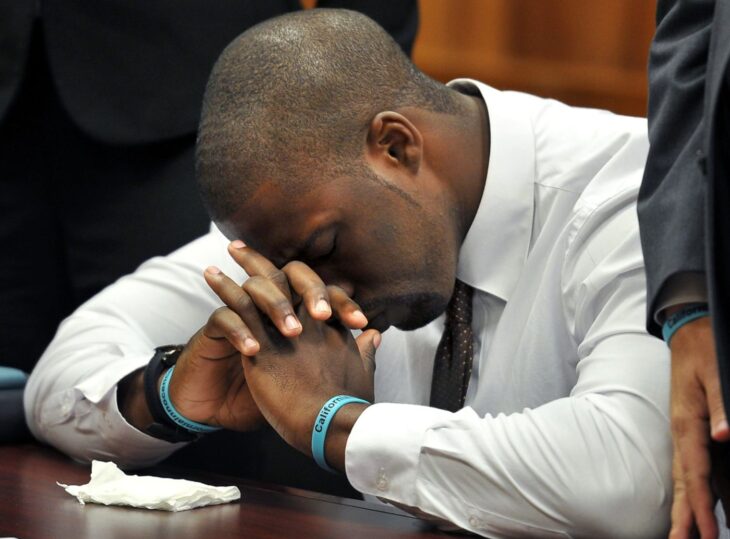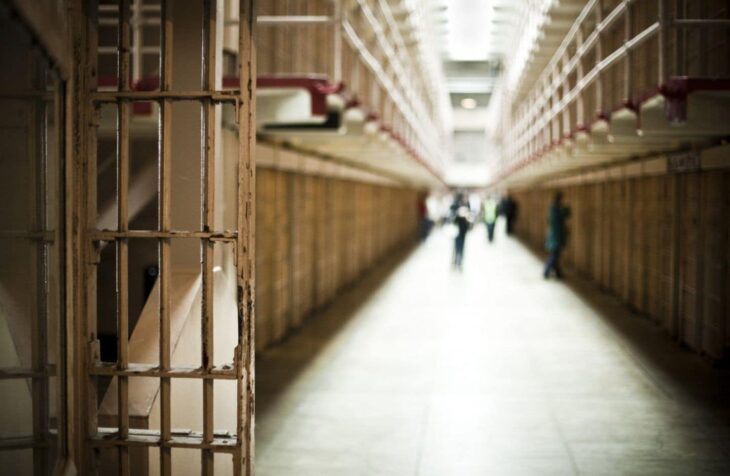It’s a natural fear to be accused of a crime, and we may well have thought about what we would do and how we would feel if we were ever charged. We would naturally fight the charges, and if we know we are innocent of these charges. But if it’s a loved one being the accused, there are a whole different set of emotions, stresses, and situations to deal with. Here we will look at how to deal with a loved one being accused of or convicted of a crime.
Contents
Hear Their Side of the Story

Source: wksexcrimes
The first thing to do is to hear their side of the story. You may already have an idea, given their history, of whether it’s likely or not that they are innocent or guilty. But no matter what your initial thoughts are, it would be nice to give them the courtesy of allowing them to explain what might have happened. If they are telling you that they are, in fact, guilty, then you will have to decide how to react to that, but for the most part, we will assume we are dealing with an innocent plea. If it is a guilty plea, then much of this article will be irrelevant, other than the sections regarding what to do under the circumstance that they are convicted.
Consider Bail

Source: nydailynews
When an accused person is thrown in jail, in all but the most severe cases, you can pay bail to allow them their freedom until their trial date comes round. This system is to ensure that the accused turn up to trial as if they do not appear, then they could lose their bail money. With this being the case, you should be careful when considering if you should pay a loved one’s bail as it would be you who loses out financially if they disappear. Being out can be beneficial not only because it is a better standard of life, but it allows the accused the time and headspace to work on their defense in a more familiar setting with better resources available to them.
Be There Emotionally & Visit

Source: cosmopolitan
If they are denied bail, then they are going to have to spend time in jail in the weeks or months leading up to their court date. It will be essential for them to keep their spirits up during this period as it can be an unbelievably difficult time for an accused. They will need to adjust to the new situation of being locked up with the added pressure of not knowing when they will get out. A regular visit from a loved one can make all the difference and really help. Firstly you need to locate them in the system, then find out the times and procedures to booking a visit and get it set up as soon as possible, even knowing a visit is coming will be good for their mental health.
Assess the Seriousness of the Offence

Source: mic
Not all crimes are equal. It’s vital to assess the seriousness of the charged crime and the potential impact post-conviction if that ends up being the outcome. Those accused of Felonies will be much more concerned than individuals who have a lesser misdemeanor on the charge sheet., as stated by felonies.org.It’s easy to research the minimum and maximum sentences possible for each crime.
Get Legal Representation

Source: dallasnews
But after doing the initial looking into the crimes your loved one is accused of using Google and the internet. It’s best to get legal representation as a lawyer will have a more experienced and professional opinion on what is likely to happen to you and advise on the best possible course of action. You may consider the pros and cons of hiring a private lawyer against using the public defender as the cost of a private attorney can be significant. Still, they should be much more engaged, interested, and have the time to work fully on your case.
Prepare for the Worst

Source: washingtonpost
Although you will put together the best possible defense you can afford, pull together, and do everything possible to clear their name, there are no guarantees on the outcome. The jury can be unusually harsh, the prosecution can present a better argument than expected, or a witness could let you down. No matter how sure you are of innocence, things can go wrong. It’s essential to have a vague plan to execute in the event of the worst. What will happen to the defendant’s home, is it rented or on a mortgage? It may need to be sold or the lease given up if they are going to be away for a long time, or will another member of the family look after it in the meantime? What about belongings in general, can they go into storage? Finally, if there are kids involved, who will look after them?
Be Ready for Different Reactions

Source: businessinsider
It would be nice to think that everyone would be as supportive as we are of the accused, but you are likely to encounter a variety of reactions. There is a section of society that will remain convinced that an arrest means guilt, no matter what, no smoke without fire you may hear. Then what about the employer, they may be unsympathetic and fire the accused, you may not even need to tell them, but it could be worse if they find out from someone else.
Appeals & Support

Source: toplawyer
If you lose the case, there is almost always a right to appeal. There are often several layers of appeal, and as you generally move up to the next highest level of court, then these appeals, on occasion, can go all the way to the supreme court in the case of some types of crime. There is no absolute right to legal representation in the appeal system as there is in the initial trial, so there will be no access to a public defender. There are though specific charities and lawyers that will provide free legal support to those they believe have been wrongfully convicted.
